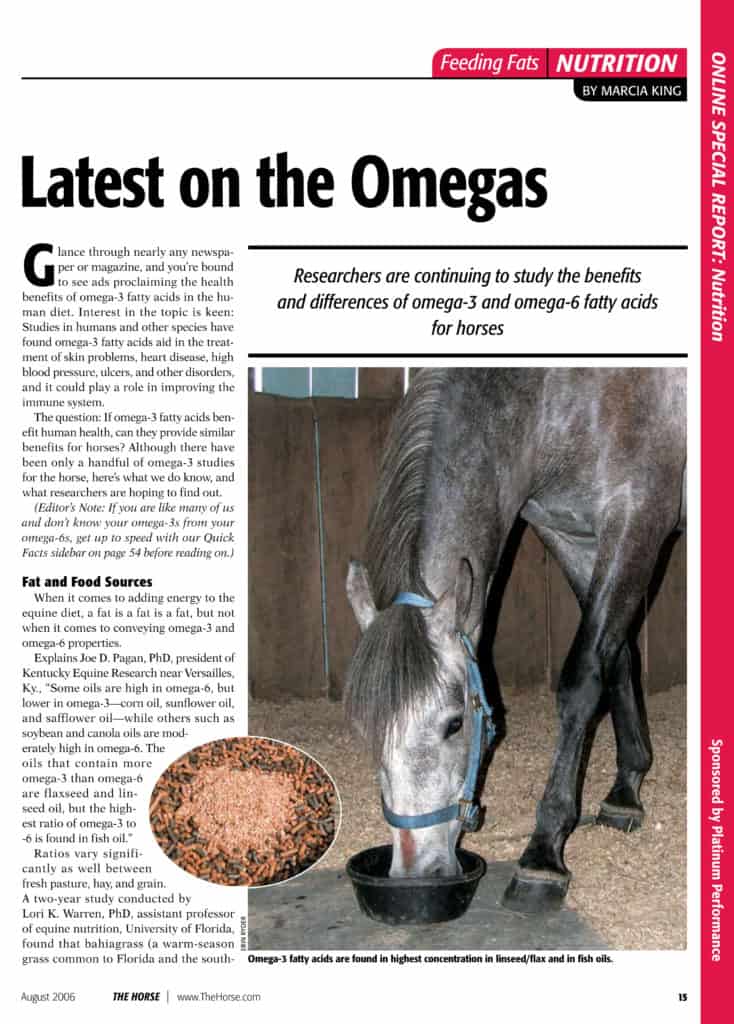Illinois Horse Found Shot; Colt Dies
A 3-year-old mare was found dead in her pasture in St. Augustine, Ill., on Dec. 26, according to The Register-Mail, a Central Illinois
A 3-year-old mare was found dead in her pasture in St. Augustine, Ill., on Dec. 26, according to The Register-Mail, a Central Illinois
The Kentucky Equine Education Project has named Patrick Neely as its new executive director.
Neely, a University of Louisville undergrad and graduate of Washington University School of Law in St. Louis, previously served as campaign
Low-carb has found its way into equine diets, with owners demanding feed products with low carb levels.
The majority of horses consume some sort of feed concentrate everyday, and most of that feed comes out of bags, according to a recent industry survey conducted by the USDA.
More than 90% of equine operations reported feeding some sort of
In Minnesota, cases of pasture myopathy (muslce disease caused by pasture) associated with severe non-exercise-induced rhabdomyolysis (also know as tying-up) are often attributed to the toxins found in white snakeroot. However, researchers at th
Researchers at Michigan State University (MSU) have reported in a pilot study that a bee pollen-based product shows promise in improving athletic horses’ feed intake.
Researchers with the Institute of Grassland and Environmental Research in Aberystwyth, Wales, suggested some possible preventative measures for pasture-associated laminitis in the July issue of the Journal of Nutrition.
Researchers have completed the new National Research Council (NRC) report that describes nutritional requirements of the horse. The report is expected to be released this fall to update the previous publication, which was distributed in 1989.
Veterinarians could use a non-invasive procedure to detect fluid shifts in dehydrated horses and respond with treatment more readily than with usual methods such as blood work.
Is there a particular type of grass hay that is better than others for maintenance diet for a laminitic horse?

The question: If omega-3 fatty acids benefit human health, can they provide similar benefits for horses? Although there have been only a handful of omega-3 studies for the horse, here’s what we do know, and what researchers are hoping to find out.
Drought and excessive heat could strain the nation’s agricultural industry. From Florida to California farmers and ranchers have already felt the effects in decreased hay production and waning grazing pastures.
“A big concern right now i

While not every horse requires supplements, they can be beneficial in specific circumstances.
Dehydration can be a significant problem for the performance horse as well as for horses suffering from other disease processes.
There are many things to consider when supplying water for horses. If you depend on a stream, pond, or ditch (rather than a controlled system such as buckets, tanks, or automatic waterers), there could be concerns regarding water quality (for your
The best, most convenient feed rooms are organized, accessible, and easy to keep clean. That’s important enough if you only have one or two horses, but once the numbers start increasing, these elements become imperative. Here are nine
Stay on top of the most recent Horse Health news with
"*" indicates required fields